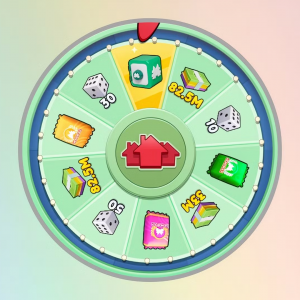As a parent, noticing that your child’s behavior is different from their peers can be both confusing and concerning. You may find yourself asking: "Why isn’t my child speaking yet?", "Why do they struggle with simple tasks other kids enjoy?", or "Why do they get frustrated so easily?"
These are common worries — and in some cases, they may be early signs of developmental delay.
Understanding the root cause of behavioral changes in children is the first step toward helping them grow, learn, and thrive. This article explores how behavioral concerns can be linked to developmental delays and how child therapy and developmental delay therapy in Delhi can provide the support your child needs.
What Is a Developmental Delay?
Developmental delay refers to a condition where a child does not reach their developmental milestones at the expected time. One or more of the following places could experience these delays:
- Cognitive skills (learning and thinking)
- Speech and language
- Motor skills (both fine and gross)
- Social and emotional development
- Daily living skills
While all children develop at their own pace, a significant lag compared to age-based norms could indicate an underlying concern.
Behavioral Signs That May Indicate Developmental Delay
Not all behavioral issues are a sign of developmental delay, but certain patterns may raise red flags:
- Difficulty making eye contact or engaging with others
- Limited vocabulary for their age
- Trouble following simple instructions
- Lack of interest in interactive games or toys
- Frequent tantrums or emotional outbursts
- Difficulty adjusting to changes in routine
- Repetitive behaviors like hand-flapping or spinning objects
If these behaviors persist beyond the typical age range or seem to impact your child’s daily life, it’s worth consulting a professional.
Why Behavior and Development Are Connected
Children express their needs and frustrations through behavior. If a child has trouble speaking, understanding social cues, or coordinating physical tasks, they may become easily irritated or withdraw from interactions. What might look like “bad behavior” could be a child’s way of communicating an unmet need or a struggle they don’t know how to express.
This is where child therapy becomes essential — helping both children and parents understand the reasons behind the behavior and guiding them with strategies to cope and grow.
Seeking Professional Support: Early Intervention Matters
Early identification and intervention are key to helping children with developmental delays reach their full potential. With timely support, many children make significant progress, especially when guided by experienced child therapists and developmental specialists.
If you’re based in the National Capital Region, several reputable centers are offering developmental delay therapy in Delhi. These centers assess a child’s strengths and areas of need, then develop personalized therapy plans, often including:
- Speech therapy
- Occupational therapy
- Behavioral therapy (CBT/ABA)
- Play therapy
- Parent training and support
What Happens During Child Therapy?
Child therapy is a structured, evidence-based process designed to address emotional, behavioral, and developmental challenges in children. For children showing signs of developmental delay, therapy often involves:
- Observation and assessment: Understanding how the child interacts, plays, speaks, and responds to stimuli.
- Goal setting: Defining what the child needs help with — from improving motor coordination to enhancing social communication.
- Interactive sessions: Using play, storytelling, role-play, and other child-friendly techniques to promote learning and change.
- Parental involvement: Therapists often coach parents on how to support developmental progress at home.
Choosing the Right Developmental Delay Therapy in Delhi
Delhi is home to many therapy centers and clinics that specialize in developmental delays and child therapy. When selecting the right support for your child, consider the following:
- Credentials: Look for licensed child psychologists, developmental pediatricians, and therapists with relevant experience.
- Approach: A multidisciplinary team approach is often most effective, combining speech, occupational, and behavioral therapies.
- Customization: Each child is unique. Avoid one-size-fits-all methods.
- Parental support: Choose a center that involves and educates parents — your role is crucial to long-term progress.
- Comfort: A child-friendly, safe, and welcoming environment can significantly improve therapy outcomes.
How Parents Can Support at Home
While professional therapy is vital, parental support plays a huge role in helping children succeed. Here are some ways you can help:
- Be patient and celebrate small wins.
- Use simple language and visual aids to communicate.
- Encourage social interaction through playdates and group activities.
- Maintaining routines will help you feel more secure.
- To improve your child's language skills, read to them on a regular basis.
- Work closely with therapists and follow through on home-based exercises.
Final Thoughts
Every child develops at their own pace, but if you notice persistent challenges in communication, behavior, or motor skills, don’t wait for your child to “catch up.” Early evaluation and intervention can make a life-changing difference.
If you’re searching for developmental delay therapy in Delhi, consult certified professionals who specialize in child development. With the right support system and compassionate care, your child can overcome delays and move toward a brighter future.







